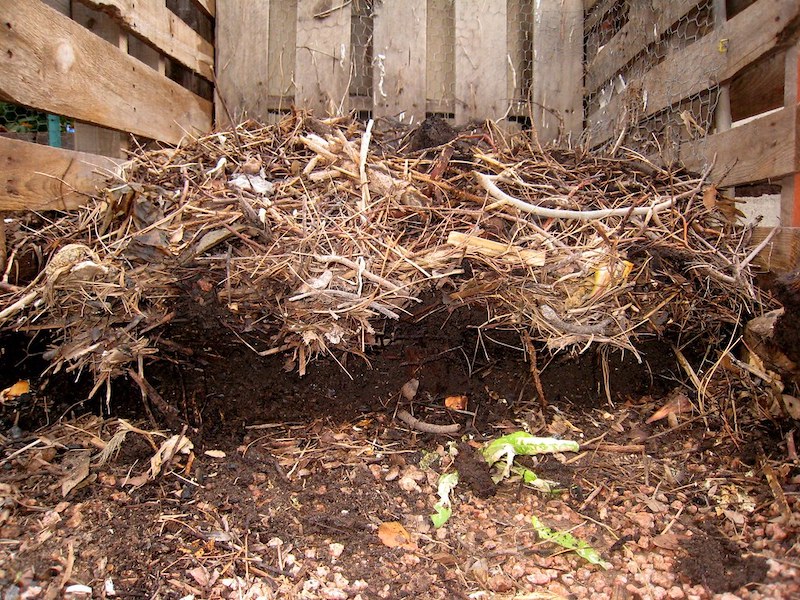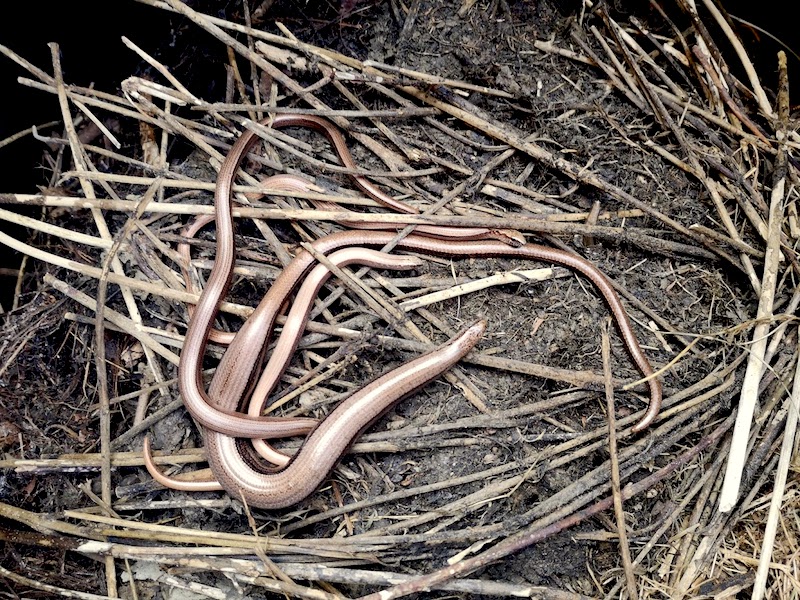Home composting: the greener way to tackle green waste
- 4 November 2021
-
 Meriel Harrison
Meriel Harrison
- Gardening

The introduction of green waste charging in North Somerset has prompted many people to think again about what they do with their garden waste and food scraps. There’s never been a better time to add a compost heap to your garden!
Provide a wildlife habitat
A compost heap can be a wonderful addition to the wildlife interest in your garden. As the contents of your compost heap start to break down, it will be full of worms and other invertebrates. Larger animals such as toads, slow worms, grass snakes, hedgehogs, birds, bats and small mammals are also attracted to compost heaps either to find shelter or to look for food. An added benefit for gardeners is that many of these are natural predators of slugs and other garden ‘pests’, so you can avoid using damaging chemical pesticides in your garden.

Cut your waste miles
By reducing the amount of food waste and garden waste you put out for kerbside recycling, you’ll be helping to limit greenhouse gas emissions and vehicle pollution. Waste that is collected by the recycling crews has to be transported and processed, all of which takes fuel and energy. From North Somerset, kerbside garden waste is taken to Gloucestershire for large-scale composting. Our kerbside food waste goes to an anaerobic digester in Weston-Super-Mare to produce useful biogas and fertiliser, but it’s even better for the environment if you compost as much as you can at home.
Save precious peat
Sadly, many commercial composts on sale are still made using peat. Peatlands are valuable wildlife habitats that take thousands of years to form and currently only 13% of UK peatlands are in a near-natural state, with the rest having been damaged or degraded. Peatlands in the UK store three times as much carbon as forests, and extracting the peat releases carbon dioxide to the atmosphere and accelerates climate change. Homemade compost can be used instead of peat-based products, reducing the pressure on these fragile habitats – and because homemade compost is so rich in nutrients, it means you shouldn’t need to use chemical fertilisers in your gardening either.
How to get started
It’s really easy to get started with your own compost heap, whether you choose to buy a compost bin, construct your own container, or just build a simple heap on the ground. You’ll want to aim for a good balance of 50% ‘greens’ (such as garden cuttings and fruit and veg peelings) and 50% ‘browns’ (such as autumn leaves, cardboard and kitchen roll) to get the best results.
The Recycle Now website also has lots of information and tips on setting up your bin, making and using compost. You can also register for North Somerset Council’s free e-learning course on composting by emailing [email protected], and you can order a compost bin made from recycled plastic for just £10 during 2021.
© Copyright YACWAG, or original authors. All rights reserved. | Registered charity 1076362 | Privacy policy | Cookie policy | Terms & Conditions |Web design: StanfordGraphics


